-
 Bitcoin
Bitcoin $76,444.7530
-3.77% -
 Ethereum
Ethereum $1,473.8355
-5.46% -
 Tether USDt
Tether USDt $0.9991
-0.08% -
 XRP
XRP $1.7965
-5.51% -
 BNB
BNB $553.4919
-0.36% -
 USDC
USDC $0.9999
-0.02% -
 Solana
Solana $105.2981
-1.74% -
 TRON
TRON $0.2303
0.81% -
 Dogecoin
Dogecoin $0.1422
-4.62% -
 Cardano
Cardano $0.5587
-4.41% -
 UNUS SED LEO
UNUS SED LEO $8.9866
1.01% -
 Toncoin
Toncoin $2.9933
-4.74% -
 Chainlink
Chainlink $10.9113
-4.81% -
 Stellar
Stellar $0.2215
-4.76% -
 Avalanche
Avalanche $16.1163
-3.29% -
 Sui
Sui $1.9371
-3.89% -
 Shiba Inu
Shiba Inu $0.0...01065
-6.69% -
 Hedera
Hedera $0.1469
-3.29% -
 MANTRA
MANTRA $6.2058
-1.53% -
 Dai
Dai $1.0000
0.01% -
 Bitcoin Cash
Bitcoin Cash $269.3457
-2.08% -
 Polkadot
Polkadot $3.3773
-5.87% -
 Litecoin
Litecoin $69.2204
-2.50% -
 Ethena USDe
Ethena USDe $0.9986
-0.01% -
 Bitget Token
Bitget Token $4.0180
-3.25% -
 Pi
Pi $0.5649
-4.50% -
 Hyperliquid
Hyperliquid $11.1928
-2.80% -
 Monero
Monero $195.3885
-4.41% -
 OKB
OKB $50.9235
-0.59% -
 Uniswap
Uniswap $4.7688
-6.95%
How to build IPFS mining nodes?
Efficient IPFS mining needs careful hardware (storage, processing, bandwidth) and software setup, choosing the right node type (full, light), and ongoing maintenance for optimal network contribution; however, profitability isn't guaranteed.
Mar 20, 2025 at 04:00 pm
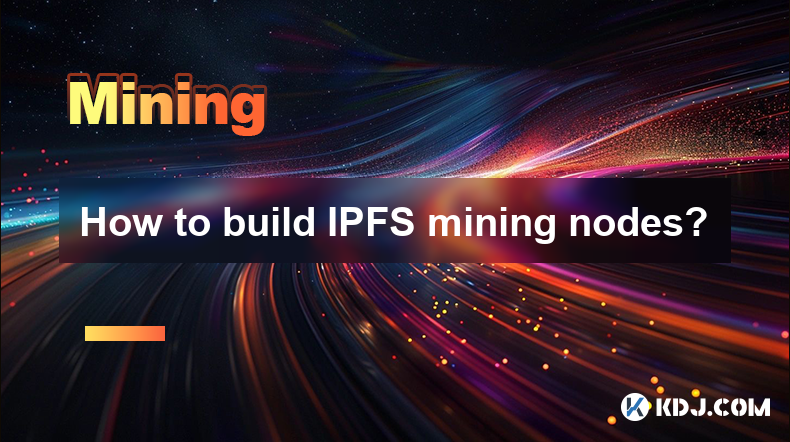
Key Points:
- Choosing the right hardware is crucial for efficient IPFS mining. Consider storage capacity, processing power, and network bandwidth.
- Setting up your IPFS node involves downloading the software, configuring settings, and joining the IPFS network.
- Understanding the different types of IPFS nodes (full, light, etc.) and choosing the appropriate one based on your resources is vital.
- Maintaining your node requires regular updates, sufficient bandwidth, and ongoing monitoring for optimal performance and contribution to the network.
- Profitability in IPFS mining is not guaranteed and depends on several factors, including network congestion and storage demand.
How to Build IPFS Mining Nodes?
Building and maintaining an IPFS mining node involves several steps and considerations. It's not simply a matter of downloading software; understanding the underlying technology and your resource capabilities is essential for success.
1. Hardware Selection:
Choosing the right hardware is paramount. IPFS nodes, especially full nodes, require significant storage space. A large Solid State Drive (SSD) or, even better, a combination of SSDs and Hard Disk Drives (HDDs) is recommended. The SSD handles frequently accessed data, while the HDDs provide bulk storage. Sufficient RAM is also crucial for efficient operation. Finally, a high-bandwidth internet connection is essential to ensure seamless data transfer and communication with the IPFS network. Consider your budget and the scale of your operation when selecting your hardware.
2. Software Installation and Configuration:
Begin by downloading the appropriate IPFS software for your operating system. The official IPFS website provides detailed instructions and downloads for various platforms. After installation, you'll need to configure the node. This typically involves setting parameters like the data directory, the amount of storage to allocate, and network settings. Consult the official documentation for specific configuration options. Incorrect settings can lead to performance issues or node instability.
3. Node Type Selection:
IPFS offers various node types, each with different resource requirements and contributions to the network. Full nodes store the entire IPFS dataset, requiring substantial storage. Light nodes only store a subset of the data, suitable for users with limited storage capacity. Choose the node type that aligns with your resources and desired level of participation. Understanding the differences between these node types is key to making an informed decision.
4. Joining the IPFS Network:
Once configured, your node needs to connect to the IPFS network. This involves bootstrapping – connecting to other known nodes to discover and interact with the broader network. The IPFS software typically handles this automatically, but ensuring a successful connection is crucial for participation. A stable internet connection is vital during this process. Failure to connect effectively will severely limit your node's functionality.
5. Node Maintenance and Monitoring:
Maintaining your IPFS node is an ongoing process. Regular software updates are essential to benefit from bug fixes and performance improvements. Monitor your node's performance regularly, paying attention to disk space usage, network connectivity, and resource consumption. Addressing any issues promptly prevents performance degradation and ensures consistent contribution to the network. Proactive maintenance is key to long-term success.
6. Understanding Profitability:
The profitability of running an IPFS node is not guaranteed. It depends on factors like the amount of storage provided, the network's demand for storage, and the payment mechanisms in place. Some projects reward storage providers with cryptocurrency tokens, but the returns are variable and not always predictable. Research different projects and carefully assess the potential risks before investing significant resources. Don't expect immediate or guaranteed profits.
Common Questions and Answers:
Q: What are the minimum hardware requirements for an IPFS node?
A: Minimum requirements depend on the node type. A light node may run on a low-spec machine, while a full node requires substantial storage (at least several terabytes) and a powerful CPU and RAM. A fast internet connection is essential for all node types.
Q: Is IPFS mining profitable?
A: The profitability of IPFS mining is not guaranteed and highly variable. It depends on factors such as storage demand, competition, and the token rewards offered by different projects. It's not a get-rich-quick scheme.
Q: What are the risks involved in running an IPFS node?
A: Risks include hardware failure (leading to data loss), network outages affecting node connectivity, and the fluctuating value of any cryptocurrency rewards. Additionally, running a full node requires significant storage and bandwidth.
Q: How much storage do I need for an IPFS node?
A: This greatly depends on the node type. A light node may require only a few gigabytes, whereas a full node will need terabytes, potentially petabytes of storage to store a significant portion of the IPFS network's data.
Q: Can I run an IPFS node on a Raspberry Pi?
A: You can run a light IPFS node on a Raspberry Pi, but a full node is impractical due to its limited storage capacity and processing power.
Q: What is the difference between a full node and a light node?
A: A full node stores a complete copy of the IPFS network's data, while a light node only stores a subset of the data, significantly reducing storage requirements but also limiting functionality.
Q: How do I get paid for running an IPFS node?
A: Payment mechanisms vary. Some projects reward node operators with cryptocurrency tokens based on their storage contribution and network activity. However, participation in these programs is often subject to specific requirements and agreements.
Disclaimer:info@kdj.com
The information provided is not trading advice. kdj.com does not assume any responsibility for any investments made based on the information provided in this article. Cryptocurrencies are highly volatile and it is highly recommended that you invest with caution after thorough research!
If you believe that the content used on this website infringes your copyright, please contact us immediately (info@kdj.com) and we will delete it promptly.
- "Cardano (ADA) Price Could Dip Below $0.60, Following Previous Market Cycle"
- 2025-04-09 05:10:12
- BONK, the well-known meme coin, has risen over 35% in the last week, attracting meme coin investors in the market. So, what caused this rally?
- 2025-04-09 05:10:12
- Bitcoin (BTC) Investors May Not Exactly Feel It, but BTC Has Been a Relatively Good Bet
- 2025-04-09 05:05:12
- Donald's Bitcoin (DONBTC) Could Turn Early Investors into Multi-Millionaires, Like Shiba Inu (SHIB) and Dogecoin (DOGE) Did
- 2025-04-09 05:05:12
- 6 Upcoming Kraken Listings That Could Be the Next Big Thing in Crypto
- 2025-04-09 05:00:13
- COTI Unveils New Privacy-Focused Blockchain to Reshape Web3 Transactions
- 2025-04-09 05:00:13
Related knowledge
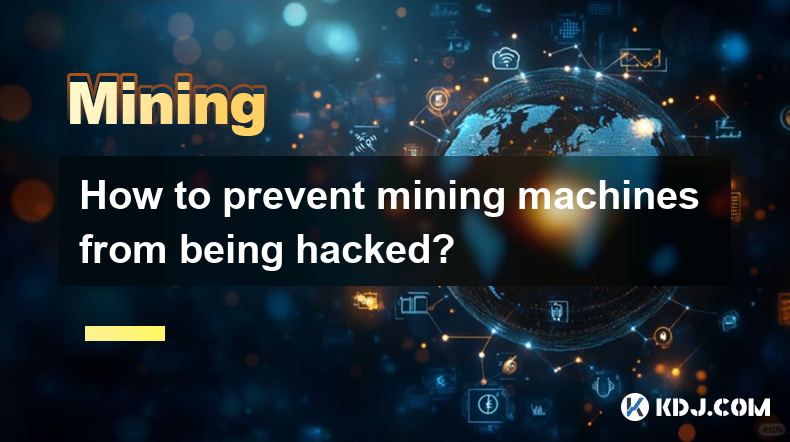
How to prevent mining machines from being hacked?
Apr 08,2025 at 09:00pm
In the world of cryptocurrency, mining machines play a crucial role in securing networks and validating transactions. However, these machines are also prime targets for hackers looking to exploit vulnerabilities for financial gain. Preventing mining machines from being hacked requires a multi-faceted approach that includes robust security measures, regu...
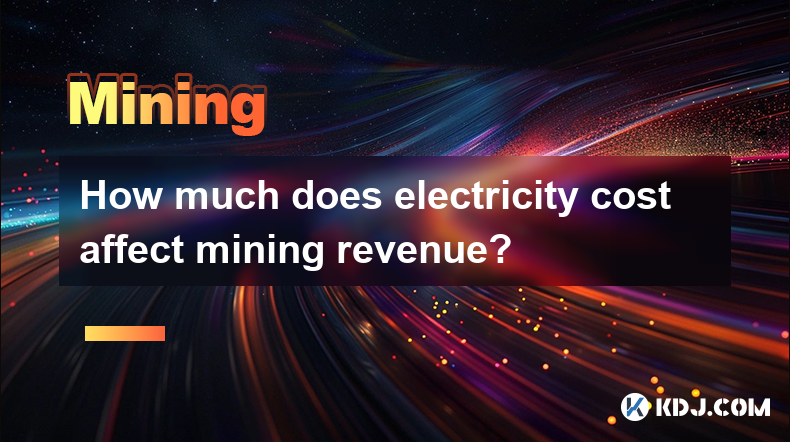
How much does electricity cost affect mining revenue?
Apr 08,2025 at 05:29pm
The cost of electricity plays a crucial role in determining the profitability of cryptocurrency mining. Mining revenue is directly impacted by the expenses incurred in running mining equipment, with electricity costs often being the most significant operational expense. Understanding how electricity costs affect mining revenue is essential for miners lo...
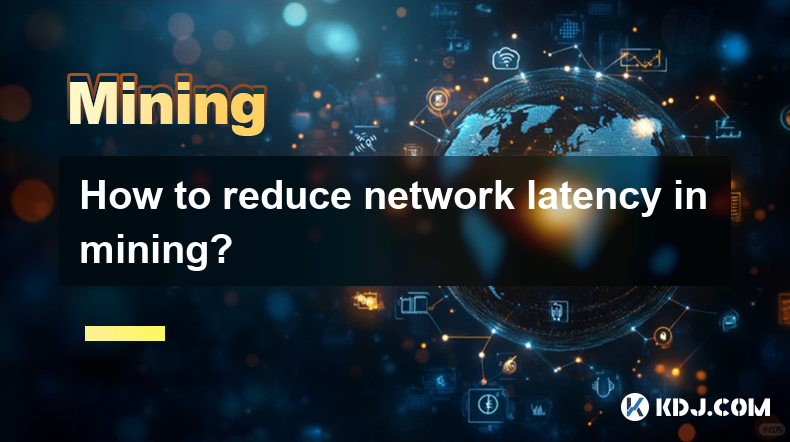
How to reduce network latency in mining?
Apr 09,2025 at 02:28am
Understanding Network Latency in MiningNetwork latency is a critical factor in the world of cryptocurrency mining. It refers to the time it takes for data to travel from its source to its destination across a network. In mining, lower latency can mean the difference between successfully adding a block to the blockchain and missing out on the reward. Red...

What is hashrate fluctuation?
Apr 08,2025 at 08:08pm
Hashrate fluctuation refers to the changes in the total computational power used by miners to process transactions and secure the blockchain network. This metric is crucial in the cryptocurrency world, particularly for networks like Bitcoin, Ethereum, and others that rely on proof-of-work (PoW) consensus mechanisms. Understanding hashrate fluctuation is...
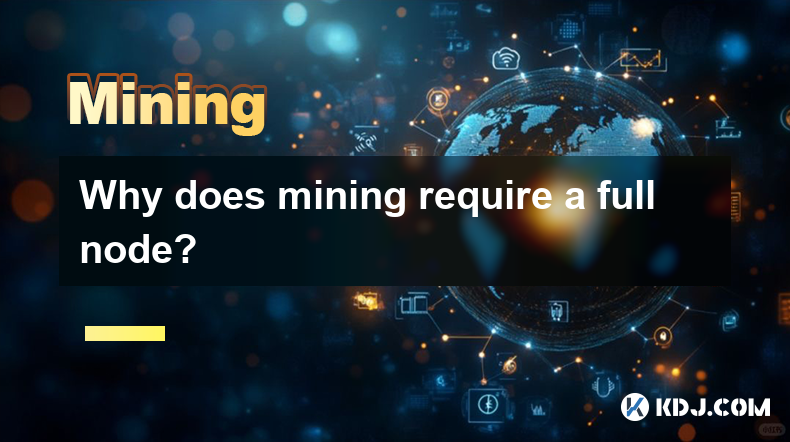
Why does mining require a full node?
Apr 08,2025 at 06:49pm
Mining in the cryptocurrency world is a complex process that involves verifying transactions and adding them to the blockchain. One of the key components required for mining is a full node. But why is a full node necessary for mining? Let's delve into the reasons and explore the intricacies of this requirement. What is a Full Node?A full node is a progr...
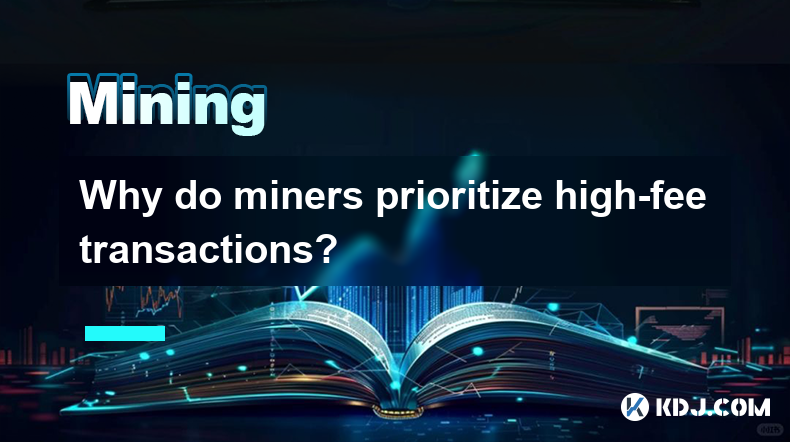
Why do miners prioritize high-fee transactions?
Apr 08,2025 at 05:01pm
Miners in the cryptocurrency ecosystem, particularly in networks like Bitcoin, play a crucial role in validating and adding transactions to the blockchain. One of the key factors that influence their decision-making process is the transaction fee associated with each transaction. Miners prioritize high-fee transactions primarily because these fees direc...

How to prevent mining machines from being hacked?
Apr 08,2025 at 09:00pm
In the world of cryptocurrency, mining machines play a crucial role in securing networks and validating transactions. However, these machines are also prime targets for hackers looking to exploit vulnerabilities for financial gain. Preventing mining machines from being hacked requires a multi-faceted approach that includes robust security measures, regu...

How much does electricity cost affect mining revenue?
Apr 08,2025 at 05:29pm
The cost of electricity plays a crucial role in determining the profitability of cryptocurrency mining. Mining revenue is directly impacted by the expenses incurred in running mining equipment, with electricity costs often being the most significant operational expense. Understanding how electricity costs affect mining revenue is essential for miners lo...

How to reduce network latency in mining?
Apr 09,2025 at 02:28am
Understanding Network Latency in MiningNetwork latency is a critical factor in the world of cryptocurrency mining. It refers to the time it takes for data to travel from its source to its destination across a network. In mining, lower latency can mean the difference between successfully adding a block to the blockchain and missing out on the reward. Red...

What is hashrate fluctuation?
Apr 08,2025 at 08:08pm
Hashrate fluctuation refers to the changes in the total computational power used by miners to process transactions and secure the blockchain network. This metric is crucial in the cryptocurrency world, particularly for networks like Bitcoin, Ethereum, and others that rely on proof-of-work (PoW) consensus mechanisms. Understanding hashrate fluctuation is...

Why does mining require a full node?
Apr 08,2025 at 06:49pm
Mining in the cryptocurrency world is a complex process that involves verifying transactions and adding them to the blockchain. One of the key components required for mining is a full node. But why is a full node necessary for mining? Let's delve into the reasons and explore the intricacies of this requirement. What is a Full Node?A full node is a progr...

Why do miners prioritize high-fee transactions?
Apr 08,2025 at 05:01pm
Miners in the cryptocurrency ecosystem, particularly in networks like Bitcoin, play a crucial role in validating and adding transactions to the blockchain. One of the key factors that influence their decision-making process is the transaction fee associated with each transaction. Miners prioritize high-fee transactions primarily because these fees direc...
See all articles






















































































